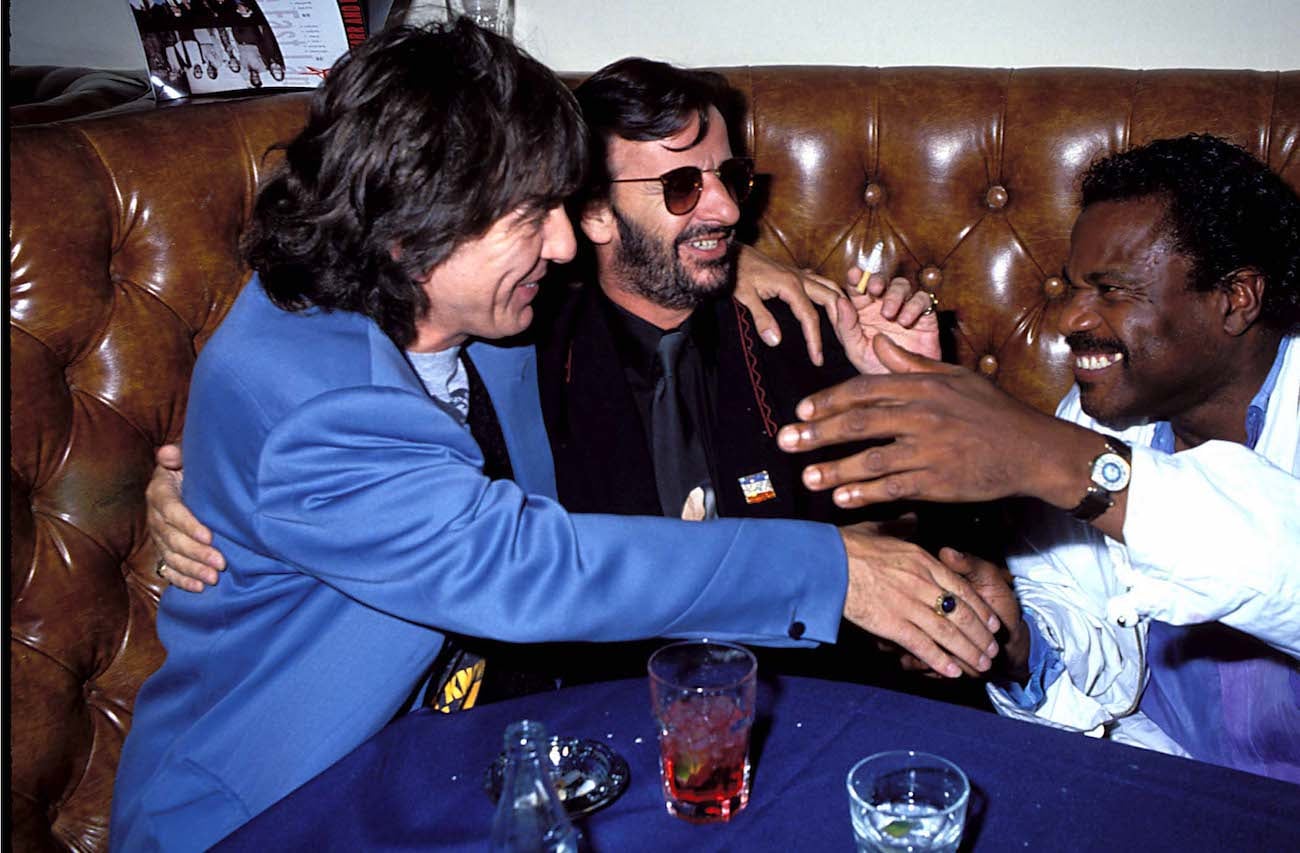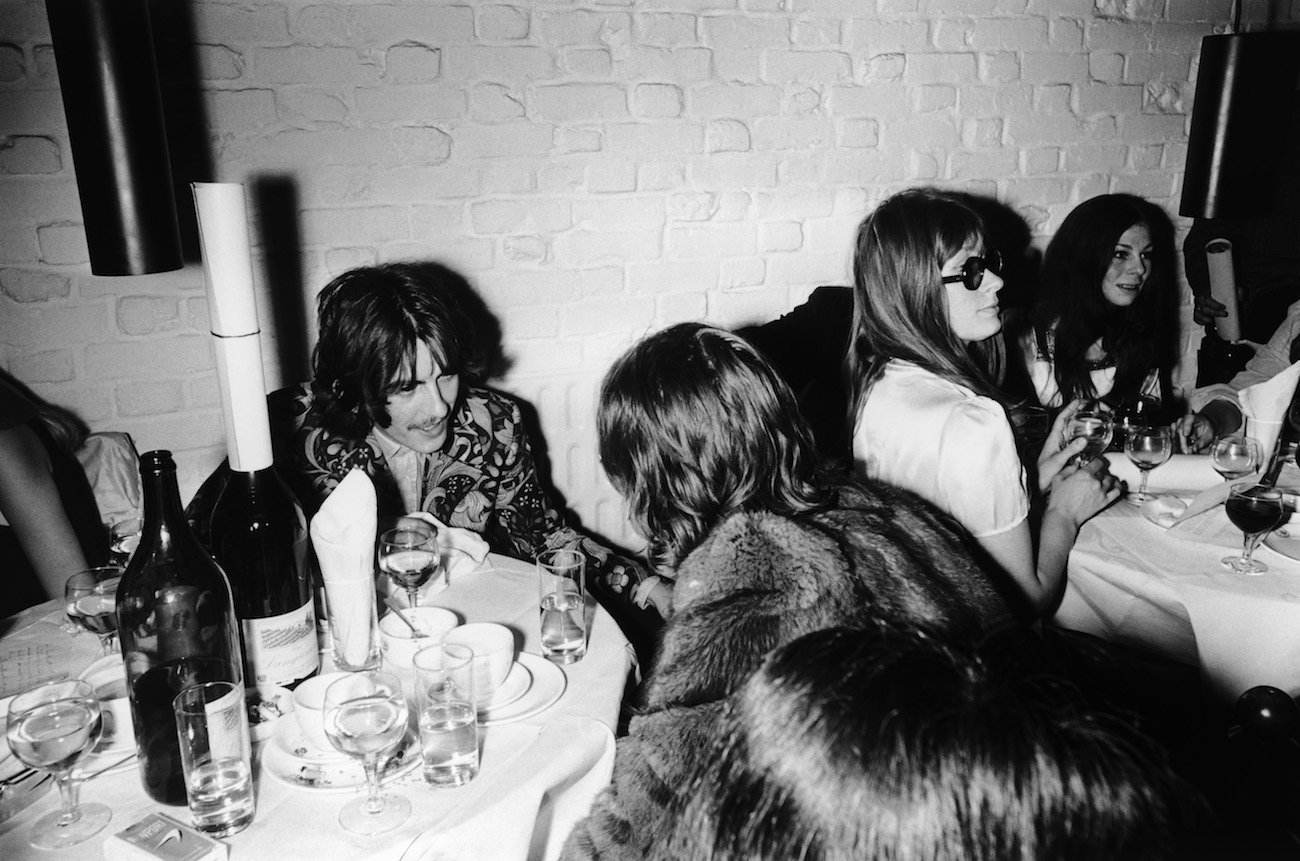
George Harrison Said He Didn’t ‘Have Much to Relate to the Friends Who Just Boogie All the Time’
George Harrison said he didn’t have much in common with his friends who liked to “boogie” all the time. It wasn’t that George disliked going out and having a good time. Partying just wasn’t high on his priority list.

George Harrison partied a lot with friends in his early career
Like any celebrity, George liked to go out and party with his friends, especially in his early career.
George’s widow, Olivia Harrison, told Rolling Stone that George had a “crazy side” that liked to have fun. His first wife, Pattie Boyd, claimed he split his time between intense meditation and heavy partying.
“He would meditate for hour after hour,” Boyd wrote in her memoir, Wonderful Tonight. “Then, as if the pleasures of the flesh were too hard to resist, he would stop meditating, snort coke, have fun, flirting and partying…. There was no normality in that either.”
However, partying soon lost its fun. As one of the best guitarists in one of the most famous bands in the world, George couldn’t go anywhere with friends without the paparazzi.
In 1964, George threw his drink at United Press International photographer Robert Flora during a night out at the Whiskey A Go Go. He hit actor Mamie Van Doren instead. That was a memorable night out with friends.
In 1968, George was fined for assaulting a French Press photographer Charles Bébert, who tried taking photos of George, Ringo Starr, and their wives coming out of a nightclub.
The year before, The Rolling Stones guitarist, Keith Richards, had a party at his home, Redlands. George managed to dodge the police before they busted it. So, it’s no wonder George started disliking booging. However, there was another reason George swore off partying.
George said he didn’t ‘have much to relate to the friends who just boogie all the time’
In 1977, George told Mitchell Glazer at Crawdaddy that he got to a point where being a rock star was one big deviation.
There were points where he loved being in the thick of it, going to parties, having fun, etc. However, there were also other times when he wanted out, which likely began happening around 1965. Around that time, George felt like he’d hit a wall where nothing impressed him, including everything that fame brought.
“Since I got involved with it in the ’60s, I’ve been heavily into it and then at times come right back out of it,” George said. “There are a lot of people in the business that I love, friends, you know, who are really great but who don’t have any desire for knowledge or realization.”
Once George realized that there was something better than fame, being God-conscious, he didn’t care about partying too much. He still went out, of course, but did it knowing it wasn’t the be-all-end-all in life. George also realized he could no longer relate to the friends who heavily partied.
“It’s good to boogie once in a while, but when you boogie all your life away it’s just a waste of a life and of what we’ve been given,” George said. “I have to pull myself back out of that maya. Unfortunately, I don’t have much to relate to the friends who just boogie all the time. It’s very difficult.
“I can get high like the rest of them, but it’s actually low. The more dope you take the lower you get, re-
ally. Having done that, I can say that from experience. Whatever it is you just need more, and the more you take the worse you get.”
He kept his rock ‘n’ roll friends and his spiritual ones separate
In Here Comes The Sun: The Spiritual And Musical Journey Of George Harrison, Joshua M. Greene wrote that George liked to keep his rock ‘n’ roll friends and his transcendental friends separate.
“George talked about how being a rock star wasn’t glamorous anymore,” George’s friend and member of the Hare Krishna Temple, Gurudas, told Greene, “and how he didn’t like hanging out with musicians because they were looking for ‘unending pleasure.’
“He mentioned that really good friends like Eric Clapton and Bob Dylan were more in the mode of goodness, and so those were the people he surrounded himself with. He did say how he was feeling empty and that ‘that’s what happens in material life,’ and how he didn’t want to make any ‘nonsense records’ anymore.
“We agreed that a soul without God is on the wheel of birth and death like a hamster going round and round, not getting any place.”
George’s friends, who were constantly partying, were the people he felt were going around and around on the hamster wheel. In spiritual terms, that was considered reincarnation. George warned against that lifestyle in his song “Art of Dying.” If a person caused stirs in the universe, didn’t care about the answers to life, or wasn’t God-conscious, George felt that they’d roam the Earth for thousands of years, constantly being reincarnated.
That thought scared George. He tried to be as spiritual as possible so that he could move on to the spiritual realm seamlessly when he died.


